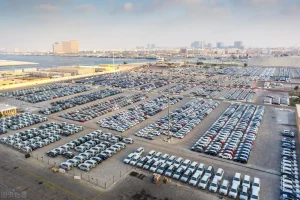The State of Qatar has established a comprehensive and structured regulatory system to govern the importation of used vehicles, including those sourced from international markets. For importers and individuals seeking to bring pre-owned China cars into Qatar, a thorough understanding of these protocols is essential for a seamless and compliant process. This framework is designed to ensure that all vehicles entering the Qatari market meet stringent safety, environmental, and quality standards, thereby protecting consumers and aligning with national priorities.
The General Import Eligibility for China Cars in Qatar
Qatar’s authorities have set forth specific criteria that every imported used vehicle must satisfy. These regulations are not unique to any single country of origin but apply universally to all imported used cars. A primary requirement is the vehicle’s age; typically, cars older than five years are prohibited from importation. This rule helps ensure that the vehicles on Qatari roads are relatively new, which correlates with better safety features and lower emissions. Furthermore, the model and specifications of the car must conform to the Gulf Cooperation Council’s (GCC) standard specifications, which cover aspects like climate control systems designed for extreme heat and compatibility with regional fuel types.
Essential Documentation
The success of any import endeavor hinges on the accurate preparation and submission of required paperwork. For a used car dealership specializing in international models, this process is fundamental. Key documents include the original certificate of title, which must be duly notarized and authenticated, proving clear ownership. A comprehensive bill of lading from the shipping company is mandatory, along with a detailed commercial invoice stating the vehicle’s value. An original certificate of origin is also crucial to verify the vehicle’s manufacturing source. Additionally, a valid certificate of roadworthiness, often obtained from an authorized testing facility in the exporting country, is indispensable for passing initial regulatory checks in Qatar.
Vehicle Modifications and GCC Standards
Prior to shipment, ensuring the vehicle aligns with GCC specifications is a critical step that importers of China cars in Qatar must not overlook. This often involves specific modifications, particularly for vehicles not originally manufactured for the Middle Eastern market. These adjustments may include enhancing the cooling system capacity, modifying the air conditioning compressor to withstand Qatar’s intense summer heat, and ensuring the engine’s ECU is calibrated for the region’s prevalent fuel octane ratings. For any used car dealership, verifying that these technical adaptations have been properly executed is vital to prevent costly rejections or delays upon the vehicle’s arrival at Qatari ports.
Critical Inspection Process
Upon arrival at a Qatari port, such as Hamad Port, every imported used vehicle undergoes a rigorous multi-stage inspection conducted by designated government authorities. This examination is a cornerstone of the regulatory process, designed to verify the vehicle’s condition and its compliance with all declared standards. Inspectors meticulously check the VIN and engine numbers against the submitted documentation to prevent fraud. The mechanical and electrical systems are tested for faults, and the vehicle’s structural integrity is assessed for any signs of major accident damage or corrosion. Passing this inspection is non-negotiable for clearance. This stringent procedure is a key reason why many importers focus on supplying the most reliable used cars, as higher-quality vehicles have a significantly greater chance of passing these checks without issue.
Taxation, Customs Duties
The financial aspects of importing a vehicle are governed by Qatar’s customs regulations. A standard customs duty, typically set at 5% of the vehicle’s assessed value, is applied to all imports. The valuation is determined by customs officials, who reference the commercial invoice and may also consult international used car valuation guides to ensure a fair market price is declared. Furthermore, a value-added tax (VAT) may be applicable. For a used car dealership, accurately calculating these costs upfront is essential for pricing strategies and overall business profitability. Underestimating these fees can severely impact the commercial viability of importing a specific model.
Registration and Final Approval
Clearing customs is followed by the final administrative procedure: vehicle registration with the Ministry of Interior. This step requires presenting the customs clearance certificate, the passed inspection report, proof of paid duties and taxes, and valid insurance documents from a company recognized in Qatar. The traffic department will then process the registration, issuing Qatari license plates. This final approval officially allows the vehicle to be legally driven and sold within the country. For consumers, purchasing from a reputable used car dealership that handles this entire process is a major advantage, ensuring they receive a vehicle that is fully compliant and ready for the road.
Conclusion
In summary, successfully importing a pre-owned China car in Qatar demands meticulous attention to a well-defined regulatory framework. The process, from verifying age and eligibility to executing technical modifications, navigating thorough inspections, and fulfilling fiscal obligations, is complex but manageable with diligent preparation. For businesses and individuals alike, partnering with experienced shipping agents and familiarizing oneself with the latest regulations from official Qatari government sources is highly recommended. By adhering to these guidelines, importers can contribute to offering Qatari consumers access to a diverse range of quality and most reliable used cars, ensuring a smooth and lawful integration of these vehicles into the national market.



